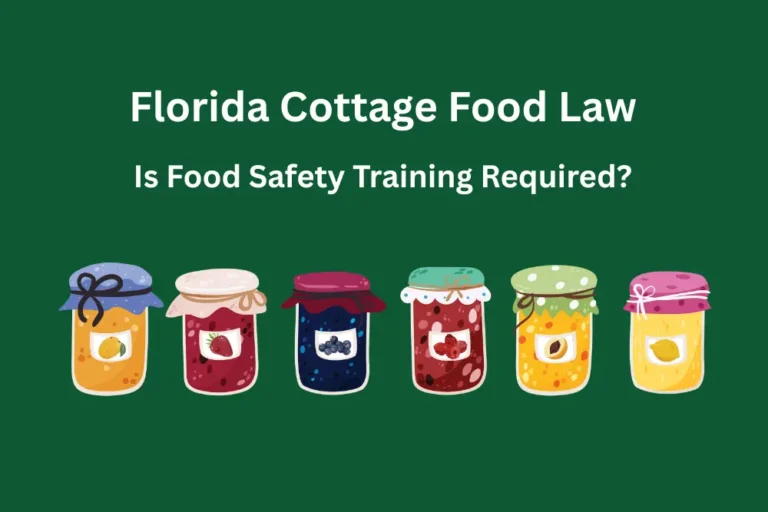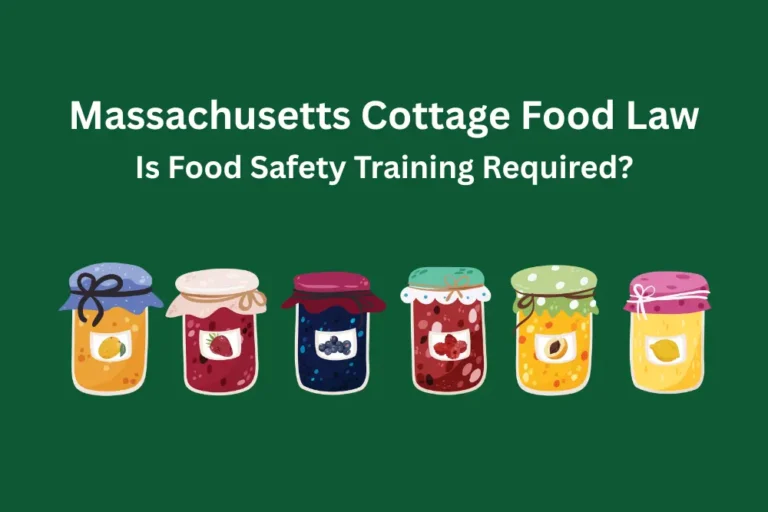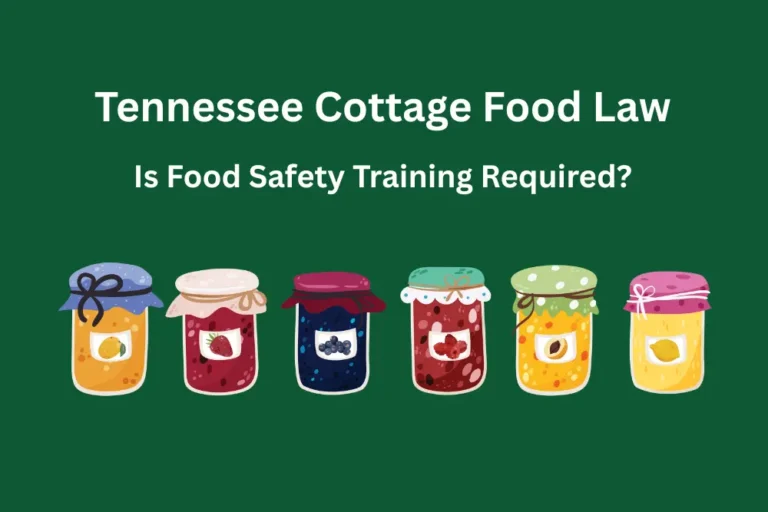South Carolina Cottage Food Law: Do You Need Food Safety Training?
Article Summary
Selling homemade food in South Carolina? The cottage food law doesn’t require food handler training, but getting your card can still give your business an edge. This quick video explains why it’s worth it, what you’re allowed to sell, and how to get your food handler card online with FoodSafePal.
Food made for sale from a home kitchen is known as cottage food.
Each state has its own cottage food law, setting rules for what foods you can make and sell, how and to whom you can sell them, and whether you need food safety training.
This article discusses South Carolina’s cottage food law — officially known as the Home-Based Food Production Law — and whether you need food safety training to sell homemade food.
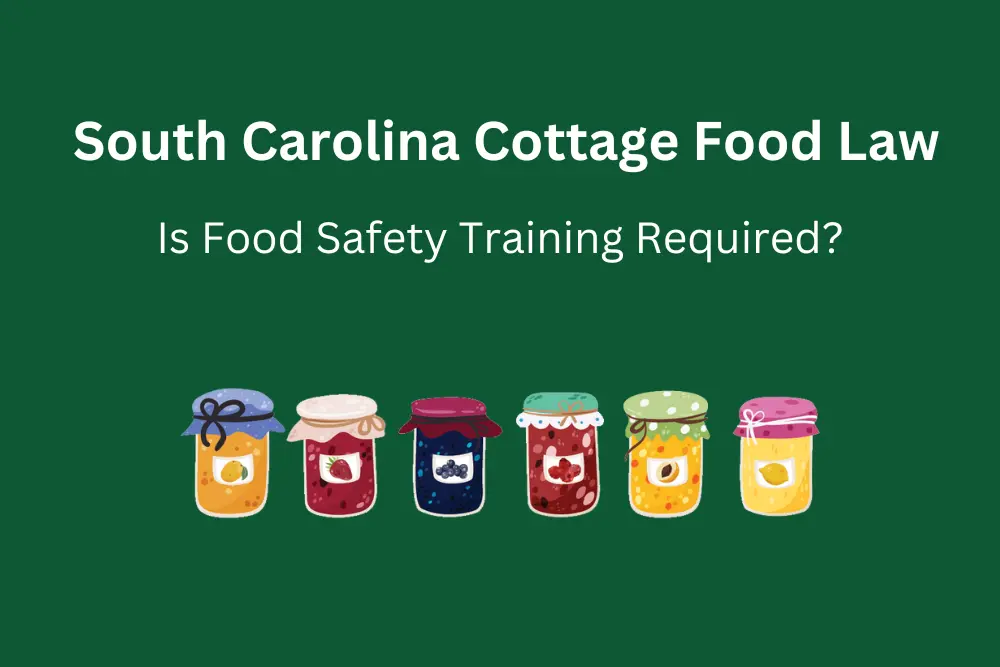
South Carolina cottage food production
South Carolina’s cottage food law allows you to make and sell homemade foods that don’t require refrigeration to keep them safe — also known as non-potentially hazardous foods.
These foods must be made, packaged, and labeled in your home kitchen and sold either directly to consumers or through retail stores, including grocery stores.
Here are examples of approved foods:
- Baked goods like cookies, cakes, breads, scones, and muffins (with allowed fillings or icings)
- Jams, jellies, and fruit preserves made from high-acid fruits using tested recipes
- Candy, caramel apples, and chocolate-coated treats
- Dried herbs, spice mixes, teas, and coffee
- Popcorn, granola, snack mixes, and protein balls
- Vinegar and alcohol-based extracts made with approved ingredients
- Shelf-stable icing and frostings made with pasteurized eggs or meringue powder
While South Carolina allows you to sell a wide variety of shelf-stable foods, there are important restrictions on what you can’t sell from your home kitchen.
Generally, if a food requires refrigeration, hot holding, or other time and temperature controls to remain safe, it’s not allowed under the cottage food law. These foods are more likely to support the growth of harmful bacteria and are therefore considered higher risk.
Here are examples of prohibited foods under South Carolina’s cottage food law:
- Meat, poultry, and seafood products
- Cooked vegetables
- Salsas, pickled products, and relishes
- Sauerkraut, kimchi, and other fermented foods
- Beverages like juices, smoothies, kombucha, and cold-brew coffee
- Custards, puddings, and other cream-filled pastries
- Cheesecakes and cream pies
- Cut fruits and vegetables
- Low-acid canned foods, including green beans and carrots
- Any other food that requires refrigeration, freezing, or hot holding for safety
If your product falls into one of these categories, you’ll need to apply for a retail food license and prepare your goods in a commercial kitchen inspected by the South Carolina Department of Health and Environmental Control (DHEC) .
You can sell your cottage food online, in person, and even through grocery stores. However, foods must be properly packaged and labeled.
Do you need food safety training to sell homemade food in South Carolina?
The state’s cottage food law does not require a South Carolina food handler card to operate a home-based food business. But even if it’s not required, having a food handler card can set you apart in meaningful ways.
Why? Because trust sells.
When someone buys from you, they want to feel confident that the food they’re bringing home was made and handled safely. They want to enjoy it with their family without worrying about foodborne illness. A food handlers card shows that you take their health — and your business — seriously.
Beyond customer trust, having a food handlers card can help you gain access to more sales opportunities.
Some farmers markets, festivals, and retail buyers, including grocery stores and coffee shops, may require proof of food handler training to protect both their business and their customers.
Liability insurance providers may also play a role. Some may require food safety training before issuing a policy, while others may offer discounts to certified vendors. Having certification can make it easier to get coverage and even save you money.
Of course, not all food handler training is created equal.
FoodSafePal’s ANAB-accredited food handler training meets national food safety standards and takes about 90 minutes to complete. It’s a quick and easy way to learn the basics and get your food handler card.
Once you pass the course, you’ll get immediate access to your food handler card and certificate. You can also request a printed version to display at markets or include with your business records.
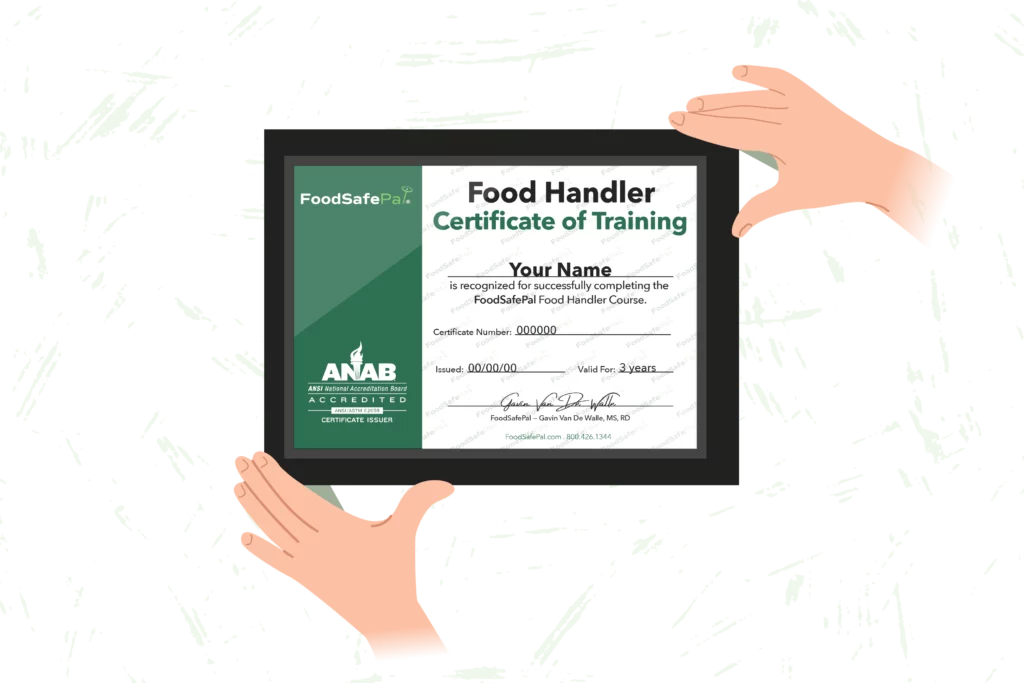
Get Your South Carolina Food Handlers Card
Instant certificate. 100% online in about 90 minutes.
Labeling requirements
Under South Carolina’s cottage food law, every product you sell must be labeled with certain information.
Your label must include:
- Your name and home address — or, if you don’t want to list your address, you can apply for a South Carolina Department of Agriculture (SCDA) ID number and use that instead
- The name of the product
- The ingredients in descending order by weight
- A statement in all capital letters and high-contrast text that reads: “PROCESSED AND PREPARED BY A HOME-BASED FOOD PRODUCTION OPERATION THAT IS NOT SUBJECT TO SOUTH CAROLINA’S FOOD SAFETY REGULATIONS.”
You must also include an allergen statement identifying any major allergens your product contains, such as milk, eggs, wheat, peanuts, or tree nuts.
Nutrition facts panels are not required unless you make a health or nutrient content claim.
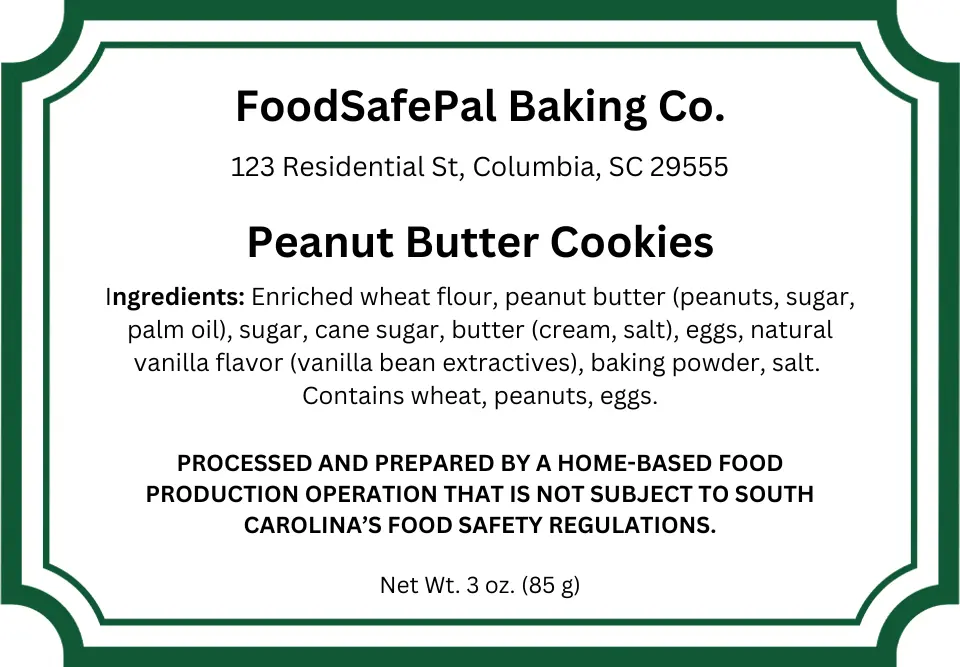
The bottom line
Under South Carolina’s cottage food law, you can make and sell non-refrigerated homemade foods like baked goods, jams, and candies, either directly to customers or through retail stores.
Food safety training isn’t required, but getting an ANAB-accredited food handlers card from FoodSafePal builds customer trust, expands your selling opportunities, and shows your commitment to making safe, high-quality food.
Every product you sell must be properly labeled — including the required disclaimer and either your address or your SCDA ID number.

Get Your South Carolina Food Handlers Card
Instant certificate. 100% online in about 90 minutes.


